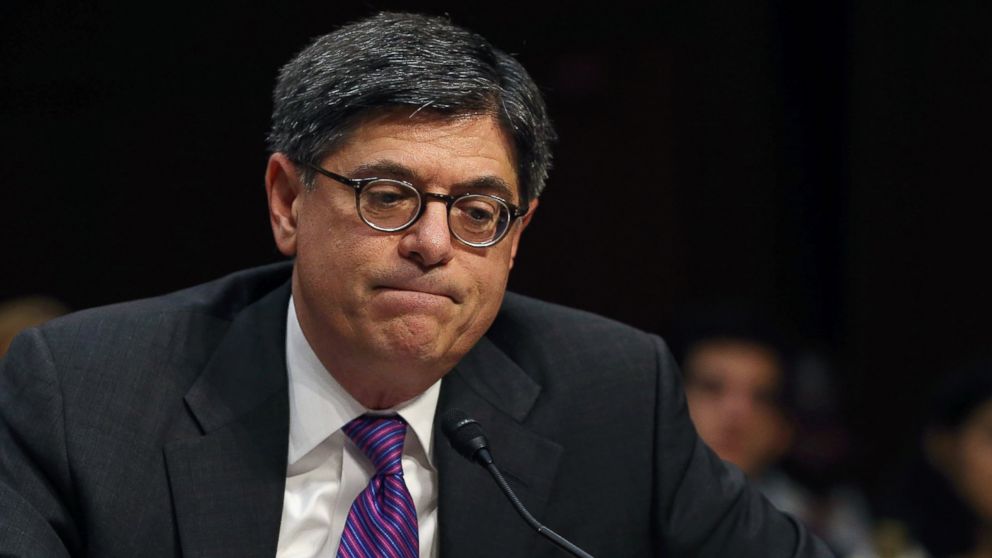Treasury Head Clashes With GOP Lawmakers on Debt Limit
Jack Lew says it would be "reckless" not to "pay America's bills."

Oct. 10, 2013— -- Treasury Secretary Jack Lew today refused to guarantee that the United States would pay the interest on its Treasury securities if Congress fails to raise the borrowing limit by Oct. 17.
The only way to assure payment of all the nation's obligations is to raise the debt limit, Lew told senators.
"It's not my decision. The president would have to decide," Lew told Sen. Pat Toomey, R-Pa., noting that such failure would put the country in default.
It could also lead to the first time the United States has not paid its bills.
House GOP Embracing 6-Week Debt Limit Hike but Shutdown Persists
Lew spoke before the Senate Finance Committee, whose frustrated chairman, Max Baucus, D-Mont., today said, "Never in my time here [39 years] have I seen Washington so angry, so gridlocked or so broken. It doesn't have to be that way."
Lew cautioned senators about the dangers of not allowing the country to borrow the money needed to pay its obligations. "It would be reckless to see what happens when you cross the line and don't pay America's bills," he said.
Lew said the government might be forced to choose between paying veterans benefits or Social Security. "The stock market, including investments in retirement accounts, could tumble, and it could become more expensive for Americans to buy a car, own a home, and open a small business," he told the committee.
"These additional costs of borrowing could not easily be undone and our actions would impact Americans for generations to come."
Baucus put it another way. "The United States of America ? the richest, most powerful nation in the world ? will be forced to look for loose change in the sofa in order to pay its bills," he said.
Some have suggested Congress could get by without raising the debt limit, forcing the administration to prioritize, in effect deciding which bills to pay and how much to pay with the cash the United States already has on hand.
Lew said he doubts that would work. "Under any scenario, we will be defaulting on obligations," he declared.
He urged Congress to end the government shutdown and pass a "clean" borrowing extension, with no provision to defund or delay the federal health care law, and then the president would be willing to negotiate future spending cuts.
Sen. Orrin Hatch, R-Utah, accused the administration of intentionally scaring the public and financial markets over the borrowing limit, "in an apparent effort to whip up uncertainty in the markets."
Hatch said the administration has refused to "even have a conversation" about reducing the soaring cost of Social Security and Medicare. "If the Obama administration won't negotiate on entitlements in the context of the debt limit, when will they negotiate on entitlements," Hatch asked.
Baucus disagreed, telling the committee, "We cannot negotiate under the threat of default on the nation's bills.
"While the government shutdown has been disruptive, a default would be a financial heart attack."




